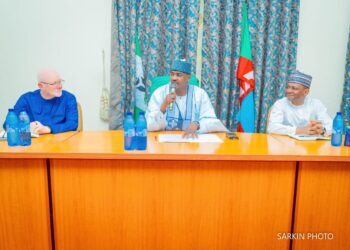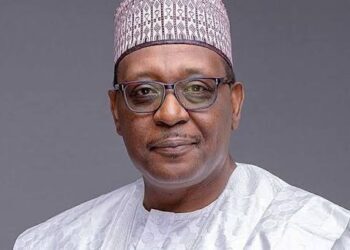The European Union (EU) has called on the Federal and state governments to fund the 41 existing Sexual Assault Referral Centres (SARCs) across the country stating that they have spent over N1 billion fighting sexual assault in Nigeria
This is even as the trading bloc has said it has contributed over N1billion for the establishment of the centres in Nigeria.
Speaking yesterday in Abuja at the 9th Network Conference of Sexual Assault Referral Centres (SARCs) in commemoration of the 16 Days of Activism Against Gender-Based Violence 2023, the EU Ambassador and Head of Delegation to Nigeria and ECOWAS, Samuela Isopi, disclosed that over 35,000 survivors have so far benefitted from the services of the centres.
Themed ‘Funding and Sustainability of Sexual Assault Referral Centres’, the event was organised by the European Union-funded Rule of Law and Anti-Corruption (RoLAC Phase II) Programme of International Initiative for Democracy and Electoral Assistance (International IDEA)
According to Isopi, the funding will go a long way to strengthen the centres to deliver on their mandate of providing free medical, counseling and support services to survivors of sexual violence.
While assuring that the EU is committed to ensuring that voices of victims are heard, she called for the establishment of specialised courts for sexual and gender-based violence cases.
“In Nigeria, the European Union has contributed over a billion naira in support of SARCs across the country and we will continue to advocate for more centres and for appropriate funding allocations at federal and state level to make them operational and sustainable.
“Addressing violence against women and girls requires a comprehensive and collective approach. We will continue to collaborate with key stakeholders in supporting legislative instruments”, she said.
The Project Manager, Access to Justice and Co-ordinator, Network of Sexual Assault Referral Centres, RoLAC II of International IDEA, Oluwatoyosi Giwa, said the SARCs were expected to provide free medical assistance, forensic medical examination, counseling and justice support services to survivors of the act.
She said the objective of the conference is to examine governance issues that continue to limit the impact and sustainability of SARCs in Nigeria and establish clarity on where and how to focus state-level advocacy for funding existing SARCs by state governments.
Giwa said: “We still have a situation where state governments as well as the Federal Government is still not funding largely, SGBV response in Nigeria. And what I mean is that when it comes to emergency rescue, response, shelter services, medical, trauma counseling we still have that significant gap where state government, federal government is still not putting the money where the legislation is. So, all of the different mechanisms that are supposed to respond are there, they are just not properly or adequately funded”.
On his part, the Attorney General of the Federal and Minister of Justice, Lateef Fagbemi, represented by Yewande Gbola-Awopetu called for multi-sectoral support from relevant stakeholders for smooth operation of the centres and support from the states through budgetary allocations and human resources services.
Also, the Minister of Women Affairs, Uju Kennedy-Ohanenye tasked states to allocate funds to the Centers in their respective 2024 budgets.
Represented by the Assistant Director, Gender Affairs, Federal Ministry of Women Affairs, Iheanyichi Amanambu, the Minister said: “As impressive as the efforts of the Federal Government are, the common challenge faced by these centers according to a recent survey is the weak commitment by sub – national governments to strengthen the multi-sectorial and inter-agency collaboration mechanisms that will sustain the delivery of SARCs services to the victims. The implication is that the Centers lack the requisite funds needed to ensure optimal services delivery.
“To this end, I enjoin all the State Ministries of Women Affairs in States where these SARCs Centers are located to as a matter of urgency and in the spirit of gender responsive budgeting specifically allocate funds to these Centers during the 2024 Budget year”.











